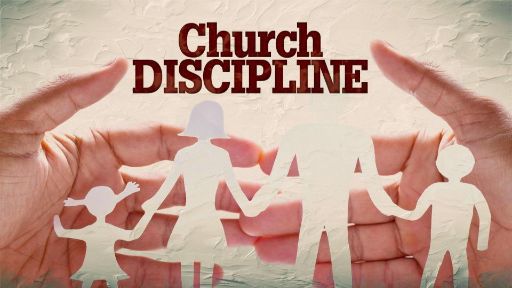-
How To Seldom Offend And Not Be Offended
Contributed by Marilyn Murphree on May 8, 2007 (message contributor)
Summary: Scripture way to deal with conflict resolution within the community of believers.
May, 2007
How to Seldom Offend and Not be Offended
INTRODUCTON: Many times there are things that come up within the Christian community that cause hard feelings among members, and these problems grow into mountains and cause divisions within the church and even church splits. How are conflicts resolved in order that people are not lost to the church and lost to Christ? Today’s scripture gives some instructions for handling problems when they come up.
John Wesley said that “our Lord’s three step rule for handling conflicts within the church “will seldom offend and will not be offended.” Many Christian communities have been taught that Christians don‘t get angry, don‘t fight about things, get along perfectly all the time and show up with a smile on their faces every Sunday. This niceness often masks many problems and conflicts just under the surface. People allow a build up to occur, and then they wonder, “Why did that person leave the church, why are these people so bitter and resentful, and why did this person quit going to church all together and vow never to come back again?”
Perhaps it occurs because conflicts are never dealt with and time doesn’t necessarily heal the things that are simmering just under the surface. Scripture points out how to bring about a greater honesty and genuineness creating a sincere place where we can be open and honest with one another, not having to hide behind the false security of a smile or constant niceness. We can be real people within the church and within the world. What kind of bond would we have with one another if we knew that we wouldn’t be condemned and rejected for our faults and sins?
In Matthew 18:1 Jesus’ disciples were arguing about who was the greatest in the kingdom of heaven. They were not perfect people even sitting at the feet of Jesus. Many times Christians feel they have to be perfect or always happy or nice because of fears of being rejected or put down. Jesus responded, “except you be converted and be as little children, you shall not enter the kingdom of heaven…whoso shall humble himself as a little child, the same is greatest in the kingdom of heaven.” In their disputes he cautioned them that “whosoever shall offend one of these little ones which believe in me, it were better for him that a millstone were hanged about his neck and that he were drown in the sea” (vs. 6). Jesus points out the seriousness of offending people, of causing disputes and conflicts with one another that would cause the Christian community to suffer irreparable harm. One old saint of God always said, “Learn to walk softly before the Lord.” Watch that you don’t deliberately run roughshod over other people or over the Lord.
In verse 15, Jesus then points to what they can do when a brother trespasses against them. In this verse He uses the word brother to mean anyone who is a part of the Christian community--a brother or a sister--a believer. A person, like yourself, who is a Christian yet who has sinned against you in some way. He doesn’t say what the problem is. It could be any kind of a dispute that has caused a wall to go up between you and someone else in the church.
Often you hear people say, “I won’t speak to that person or won’t associate with him or her. I won’t go to them first. They have to apologize to me first.”
Christians can work themselves up into a real huff over a molehill and soon it becomes a mountain. Some problems, however, are mountains to start with. What if this happens to you and angry words and accusations begin flying in all directions? What if you feel you have been offended and sinned against and treated wrongly? What can we learn from Jesus’ words in this scripture? How does it apply to us today as well?
1. Go to Your Brother or Sister: Jesus said, “If your brother or sister sins against you, don’t stand back and wait for that person to come to you first and apologize or say, “I’m sorry. I was wrong.” He says if you see that a conflict has occurred and someone has sinned against you, it is up to you to make the first move. You see the problem. Maybe the other person is not even aware of it at that point. Jesus told them to go to the person and point out what has happened just between the two of you.
The goal here is to see the problem resolved and the friendship restored, not to cause an angry confrontation. Many times Christians will go but with an air of superiority. “I’m right and you are wrong, and I’m confronting you.”

 Sermon Central
Sermon Central



